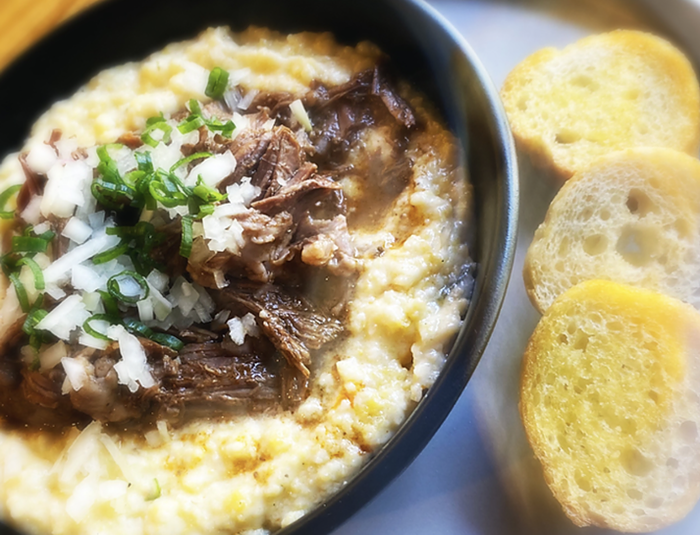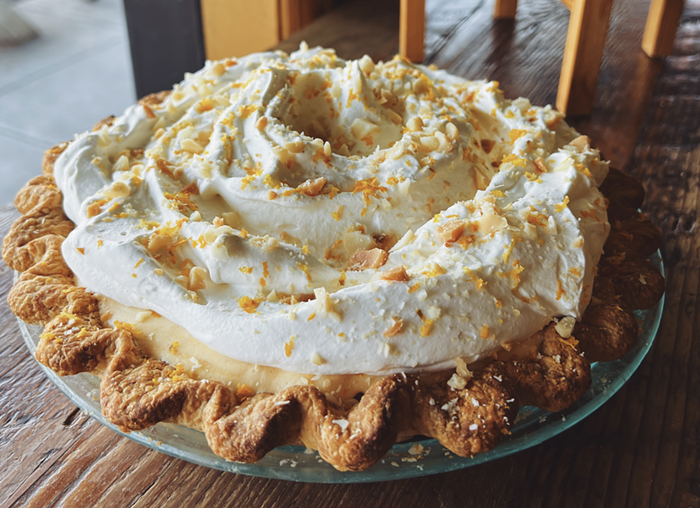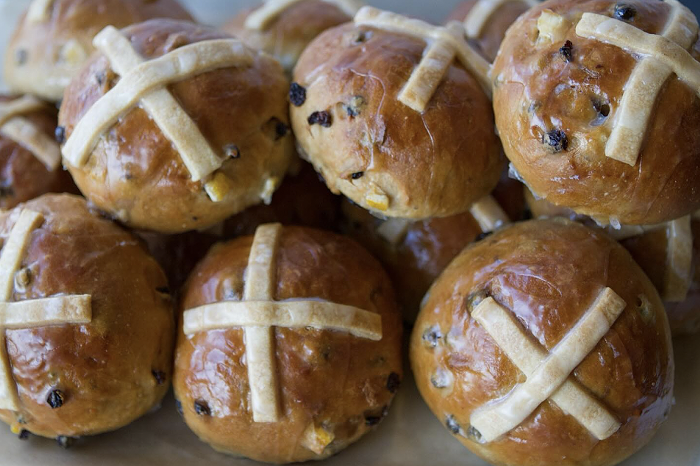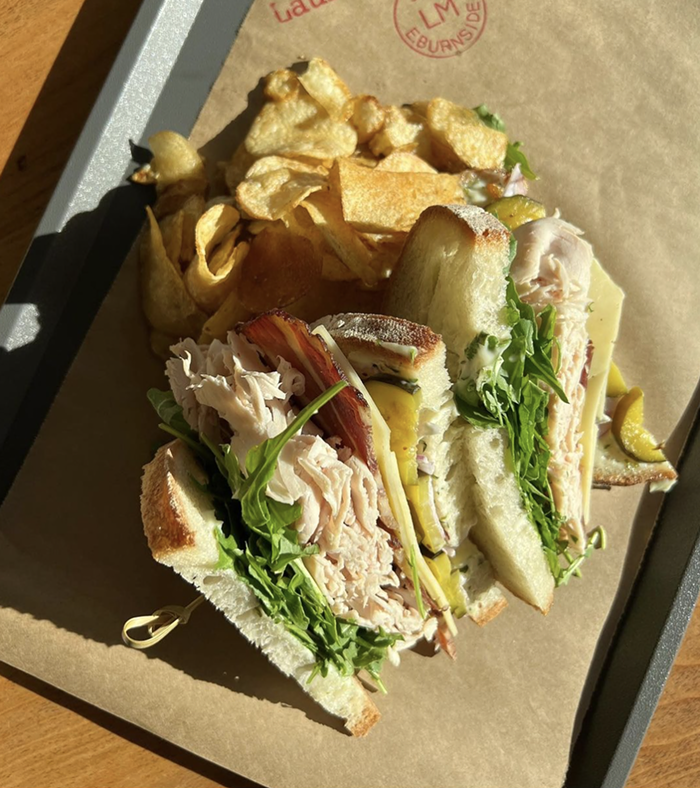
- Denis C. Theriault
- Roger Goldingay, right, owner of the Cartlandia pod on SE 82nd, addresses the council.
Fretting over the (remote) prospect that the Oregon Liquor Control Commission might suddenly decide to give annual liquor licenses out to hundreds of food carts all across Portland, the Portland City Council this morning approved a resolution asking the OLCC to let city officials, cops, and maybe even industry representatives help craft hard-and-fast rules meant to govern who gets a license and who doesn't.
Even more importantly for a frustrated Mayor Sam Adams—who seized on a chance to take a stand against a dramatically "underfunded" liquor regulation system he called broken—the city also wants explicit powers to crack down on any hooch-slinging carts that don't toe the line.
The vote on the resolution, put forward by Commissioner Amanda Fritz, came after a somewhat feisty hearing that pitted the only cart operator in town currently seeking such a license—Roger Goldingay of Cartlandia over on SE 82nd—against a prosecutorial city council worried they'd otherwise be powerless to stop a wave of license applications let loose by the OLCC. The resolution counts some 690-plus food carts in the city. Update: The post ought to have indicated that Dan Saltzman voted no.
"I'm surprised to hear you don't think there are any rules we have to abide by," Goldingay tried to tell the council. "We have certainly been presented with a lot of rules by the OLCC."
The OLCC has long granted cart operators temporary licenses. But after the state Justice Department ruled it had to treat carts like regular restaurants, it began devising guidelines to govern how and when carts could apply for the annual permits. The problem, as Fritz and Adams see it, is that those guidelines aren't as strict as actual OLCC "rules"—giving the city little recourse for shaping them or enforcing them.
"I have grave concerns about this proposal. We are spread thin as it is," Adams said, taking pains to declare his love of food carts but later referencing the city's struggle to shut down a problem establishment like Club 915 even with tougher "rules" in place. "Even if a fraction of the 696 apply it's a real problem for us. We're looking at budget cuts. We're also looking at gang violence. If this moves forward, it will inherently make our job harder."
The resolution actually has support from the Oregon Street Food Association, an upstart lobbying group newly cleaved from the combative, brick-and-mortar-focused Oregon Restaurant and Lodging Association. But that didn't stop the discussion from dancing all over that fault line.
After all, noted Whiffies owner Gregg Abbott, the lack of liquor sales was something cart owners could point out whenever restaurant owners groused about things like having to pay for bathrooms.
"We support the resolution," Abbott told me after the meeting, speaking on behalf of OSFA. "We'd like clearcut rules that make sure public safety is taken care of. We'd like to see someone have enforceable rules."
Representatives from neighborhood groups, the Downtown Marketing Initiative, and Travel Portland also spoke in favor of the resolution, worried about what would happen to downtown if common drunks suddenly found a host of new places to pick up their peculiar kind of fuel.
Goldingay said he'd already done much of what was requested by the OLCC—explaining that he had put up a fence around the cart pod's entire lot, which he owns, that he'd hired extra staff to monitor drinkers, and that he'd only sell beer and wine from noon to 10 pm (though the OLCC would allow sales from 7 am to midnight).
"There's a reason Cartlandia is the first one the OLCC has brought to the table," he said. "I'm the only one."
Randy Leonard, who took on food carts back when he ran the Bureau of Development Services, accused Goldingay of trying to serve beer and wine in an area he described as "ground zero" for high crime and poverty. Leonard, who lives on the east side, very dramatically exclaimed that he doesn't even let his wife venture alone to pick up parcels at a nearby post office.
Then came a threat.
"Under the category of be careful what you ask for, you might get it," Leonard said, also reminding the room that . "If you add alcohol to the mix, it's a matter of time before some state legislator or some very focused member of the city council figures out a way to shut you down. I'd really think hard about what you're doing and I'd especially think hard about where you're trying to do it at."
Earlier Leonard had raised the prospect of hundreds of food carts serving liquor to customers without walls to contain their LOUD REVELRY. "We've been pretty lax on enforcing," Leonard said. "This [resolution] is a good start in terms of strategy, but i think there are other strategies we might use as well. They may not make food cart owners happy."
Fritz repeatedly tried to step back from focusing on just one cart pod, and spread that message to TV cameras after the meeting.
"This hearing is not about whether Cartlandia should have a liquor license," she testified. "It's about whether we should have rules for the whole city."
Abbott said he thought concerns about liquor sales sprouting all over town were overblown. He said that under the least rigorous application of the OLCC's guidelines, only 10 pods at most could get into the booze business. Realistically, though, he said it would closer to three or four who could afford to comply with the rules and still have booze sales pencil out.
As to whether this might become another excuse for moneyed, politically connected interests to take shots at food carts?
"Sam's assertion that the entire system is broken is correct," Abbott says. "But I take Sam at his word. He loves food carts."


















